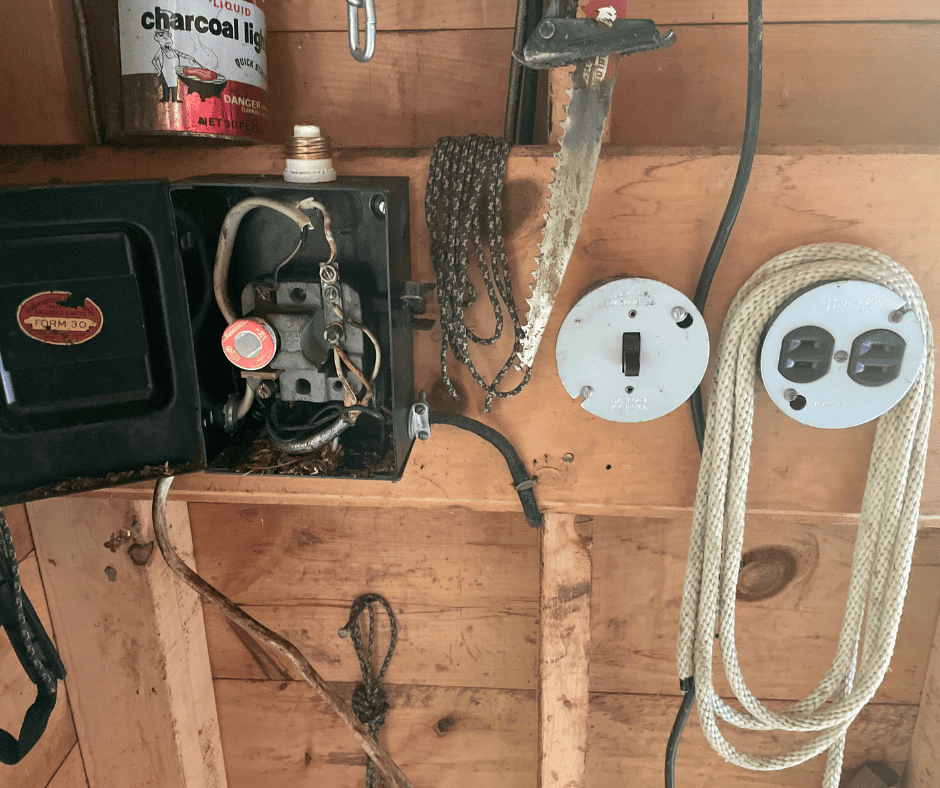Let me tell you about my journey as an electrical subcontractor and how I improved my odds of success. In this post, I’ll give you my thoughts on becoming a successful subcontractor so you can have my perspective if you’re considering being a subcontractor.
A little about my story before we dive into the topic of subcontracting.
During my early years as an electrical subcontractor, I mostly worked on new residential homes, condominium projects, apartment complexes, warehouses, and modest-sized office buildings. But over time as I gained experience, I expanded my scope of work to include state and federal projects.
I moved to state and federal contract work, thinking that payment and workflow would be more secure because doing this type of work was covered by surety bonds, and working with government agencies provided a steady stream of new projects.
But going from private to government work only exposed me to more scrutiny from the DOL, OSHA, and the mandated affirmative action programs, along with mounds of paperwork that goes along with doing government contracts
And the reason in the first place for getting into this line of work was for payment and workflow security, but that didn’t happen. All that happened while doing state and federal work was an increase in my overhead expenses, paperwork, paperwork, paperwork, and not to mention the personal anxiety, and stress level that cam from this type of work.
My company completed many projects in several sectors, including state and federal. Some of the most interesting work we did was on water treatment plants, public libraries, museums, and municipal building projects. All was good…
However, as you can guess, good times only last for so long. As it happened, in one year, and at the same time, two large renovation projects we were working on had performance and payment issues. These delays in performance and payment caused abrupt and catastrophic changes to our company.
Midway through one project, the prime contractor introduced a new project manager. This change caused confusion and severe delays because of the new management style. The new project manager brought a new mindset to the project. His idea of good project management was “his way or the highway” type of “can do” attitude.
We were used to the “how can we work together to get the job done as a team” method. Times were definitely changing, and they were changing fast! Gone were the contractors of yesterday or what once was the general contractor who had his own tractor, backhoe, dump truck, and construction crew. Now the contractor has become the prime contractor or, more specifically, the construction management company.
Our other headache project that we were dealing with, the general contractor made this switch to the new construction management style while in the middle of a project too, but with a twist. They filed for bankruptcy midway through the project. As you can imagine, this brought the job to a screeching stop while the owner and bond company figured out what to do and how to proceed. In the meantime, everyone’s outstanding and unpaid requisitions were on hold! It was quite a hot mess…
Ok, back to the topic of subcontracting and how to become a successful subcontractor….
My Subcontractor Solution
It so happened that my Square D electrical supply salesman, Tom Joyce, and I spoke about the difficulties and expenses involved in undertaking significant subcontracting projects. During our conversation, he joked about a ten-million-dollar Deer Island project that one of his larger electrical contracting companies had recently won and how they were looking at financing the project.
Know the difference between prime contractors and subcontractors by checking out this post: Contractors vs Subcontractors
The Secret – How to Become a Successful Subcontractor
This contractor, who was a large union electrical contractor, told Tom…
“Tom, you know what you need in this business. You need deep pockets, is what you need. And you know what, Tom? If you have deep pockets, why be in this business?
Exactly!!! I need to reevaluate how I’m doing business…
Although Tom’s story was humorous, it struck a nerve with me and this comment occupied my mind every day. It made me realize I had to do something different and it changed my thinking.
The Turning Point – How to Become a Successful Subcontractor
The thought of office, vehicles, liability, and workman’s comp insurance overhead – steep prevailing wage payroll and materials expenses, and mounting accounts receivables were burning a hole in my wallet and my brain. Something had to change.
The road ahead was very clear. Either put your head down and push harder into the wind or figure something else out. I was obviously at a fork in the road come upon by chance.
Tom’s tale was pivotal in helping me come to a decision. I had to choose between changing my subcontracting business strategy and finding new opportunities or leaving the business altogether.
I knew things had to change quickly, so after considering it, I decided to change from being a subcontractor to a prime contractor within my electrical trade. It wasn’t a difficult choice, really. I wanted to stay in business, just not the subcontracting side of the business.
So, now you have it. That’s how my story of departure from subcontracting happened.
Let’s now understand how I arrived at this conclusion and the course I decided to take, so you can figure it out yourself and how to become a successful subcontractor should you choose that path…
Advice on How to Become a Successful Subcontractor
Considering several things before beginning subcontracting work for prime contractors in the construction business is essential.
Although we’ll cover them below, I won’t discuss the basics of licensing, insurance, and qualification. That’s where you’re thinking anyway, and you can figure those things out. It’s what you’re not thinking about is my point of view…
The number one factor to consider is to start off slowly and work on projects you can manage and complete if everything goes wrong. You want to avoid exposing yourself to a work overload or threatening your cashflow situation.
You have many challenges as a subcontractor. Project conditions, key personnel turnover, financial difficulties, and unpredictable weather can all play a role. Unexpected situations can catch you off guard during a construction project that may hinder your progress or even jeopardize your business. Not to mention the personalities you might deal with on projects.
While many subcontractors run into their fair share of labor, financial, and supply-related issues, the most significant challenges you might face are those you don’t see coming and are beyond your control.
Cash flow is king, and a delay in payment can devastate any business.
Financial institutions have pulled financing on projects mid-stream. What then? How would you plan for requisition payments that arrive differently than expected, that get interrupted, skipped, reduced in amount, or severely delayed by elements beyond your control, such as the project owner’s decisions, the prime contractor’s performance, or unexpected economic events?
When the economy is robust, and there is an excess of projects and money flowing, financial difficulties with owners and prime contractors may only be evident once it’s too late for you to act.
How quickly do situations change?
Have you ever heard of instances like Black Monday, the 2008 financial crisis, or the recessions that occurred between these two significant financial crises? What’s the economic situation now?
A change of ownership, management, a key person’s death, or even divorce within a company you are doing business with can be devastating and change things for you on a project.
Are you ready to continue the job without enough cash flow if one or two key projects go poorly? How deep are your pockets? How will you feel if you find yourself financing someone else’s project and no guarantee of payment?
What if you don’t get paid?
Sometimes there’s a legitimate reason why payment is held up, but how do you know? Do you trust your customer? Or even their customer? Remember, you are a second, sometimes third-tier creditor with limited contractural rights.
What would you do? Here you are; you’re complete with the project, and you are owed two or maybe even three requisitions, or more, and maybe some retainer money on top of that. How long do you wait before you worry about getting paid?
You’ve already paid for your general monthly overhead expenses, you’ve most likely paid for your labor, and you’re probably still waiting for the rest of your supply bills on the project to be delivered to your office…
What happens if you have to pull the trigger to collect payment?
Well, forcing the payment collection will be even more expensive for you. And the irony is it provides your customer, the prime contractor, a reason to put you at the bottom of their pile of things to deal with. They know their only exposure is the money they owe you, and you have now started the clock of legal expenses, which they’ll use for negotiations to settle your claim against them.
Considering the potential difficulties and financial risks, thinking carefully before entering the construction sector as a subcontractor is crucial.
Still interested in being a subcontractor?
Here are some tips that could be useful for successfully managing your subcontracting work and how to become a successful subcontractor and keep your skin:
- If possible, and at all costs, consider all other options FIRST before being a subcontractor! Just my suggestion…
- Find a way to work directly for the project owner or with the owner as a prime contractor instead of as a subcontractor.
- Building a good relationship with the owner increases your chances of success if you must be a subcontractor.
- Develop a business where you offer unique value and services. Can you sell your services directly to owners or position yourself as valuable and irreplaceable to them?
- Electrical and mechanical trades can focus on areas where you directly provide specialty services to owners, particularly in installing and maintaining specialty HVAC and electrical systems.
Know Your Stress Tolerance
Owning a subcontractor business, especially when working on large construction sites, can be very stressful.
Once a project has been awarded, it can be challenging to find crucial employees because most prime contractors don’t choose their subcontractors for a project until only when the project is ready to begin, giving you little advance notice to secure additional manpower if required.
So, you have no choice, really. You’re in business, with all the overhead and responsibility to employees and their families, and you have to keep the lights on for not only you but for everyone else too. You must secure new projects. It’s the only way to keep the business open and your key personnel employed with you.
For subcontractors to keep essential employees, you need a constant workflow. Losing skilled workers is dangerous because there isn’t enough work, and getting more work is dangerous too. Go figure?
Additionally, project managers can place subcontractors under undue pressure to deliver, leading to their occasional use of threats of termination and back-charges, whether justified or not, to get you to conform to their project schedule, no matter how awkward it is for your schedule.
Subcontractors still have to think about money even after finishing the project’s work and working on the never-ending punch list game to close out a project.
Even upon completion of the project, the subcontractor may be due a sizable sum of money from outstanding requisition amounts due, along with change orders and retainage.
In addition, unexpected charge-back lists frequently appear, which prime contractors use to negotiate final payment owed to subcontractors.
There’s a lot of stress brought on when working as a subcontractor. So it’s crucial to assess your capacity to manage your stress level as a subcontractor. Make sure you are up to date with your health insurance, as many heart attacks have been caused in the construction field!
Key Takeaway on How to Become a Successful Subcontractor
- At all costs, avoid subcontracting if possible.
- If subcontracting is necessary, consider the following:
- Focus on a specialized product or service.
- Don’t take on projects larger than you can adequately staff or finance.
- Establish a line of credit for emergencies.
- Be selective in choosing the contractors you work with.
- Ensure you have sufficient funds available to support your part of the project.
- Network and cultivate relationships with prime contractors you want to work with and can trust.
Good luck with whatever you decide to do!










